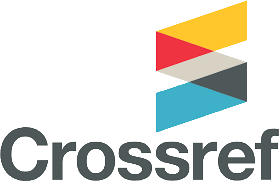Students' Emotional Creativity and Academic Achievement
Abstract
Creativity is one of the constructs related to the process of learning and education. Since one of the important goals of education is to develop creative talents and since research suggests that creativity has an impact on academic achievement, it is necessary to pay attention to this students’ ability and its effect on the learning process and its mediating variables. Emotional creativity is largely related to various emotional experiences and creativity in laboratory tasks, which requires the expression of emotions and has no correlation with cognitive intelligence. The aim of present study is to investigate students' emotional creativity and academic achievement. The research method is descriptive-analytical and library resources were used to collect data. Studies have indicated that motivation is one of the most important factors in academic achievement. Motivation is the activator of human behavior. Several studies show that motivation is one of the main factors of behavior and has an effect on all behaviors including learning, performance, perception, accuracy, recall, forgetfulness, thinking, creativity and emotion. Considering the relationship between emotional creativity and academic achievement in general, it indicates the significant role of emotional intelligence in predicting academic achievement. Academic achievement is not only affected by knowledge structures and information processing processes, but also by motivational factors such as beliefs, attitudes, values, and anxieties.


